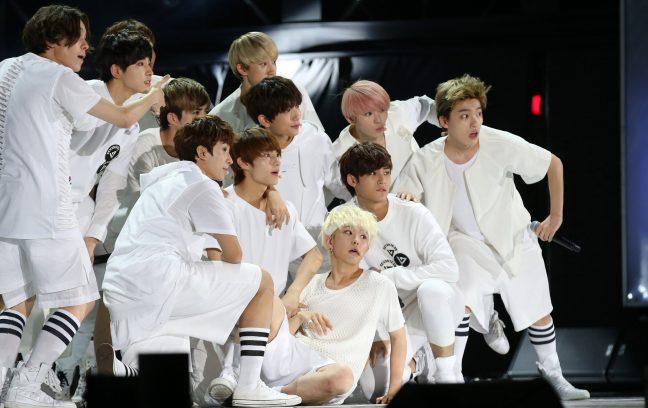In the past few years, anime has made a resurgence in American culture. Those who remember watching Naruto on Cartoon Network can now experience it on many different streaming sites and it’s a trending genre among adolescents. But what anime watchers and their counterparts fail to realize is their reach is so much broader than cartoons.
The three Asian powerhouses of China, Japan and the Koreas have permeated U.S. entertainment and culture through the effects of “soft power.” Unlike the aggressive militant or economic tactics of hard power, soft power has a deeper focus on culture.
This can include arts and entertainment, which in America’s case, we’ve seen Japanese anime influence American cartoons, K-pop top music charts and Chinese collaborations with Hollywood. With that in mind, here are a few examples of Asia’s impact on popular American entertainment.
K-Pop and Dramas
What may have started as the meme of “Gangnam Style” has emerged as a profitable market in America. K-pop has topped music charts and awards shows time and time again with artists like BTS and Blackpink.
BTS was No. 1 on the Billboard Music Top 100 for their single, “Dynamite” for three consecutive weeks by the end of 2020 — you heard it everywhere. They’ve been on famous talk shows, acted for American advertising and even performed at a few award shows, including the VMAs.
It stands to reason K-pop is getting more popular every week in the U.S., and K-dramas are making an appearance as well. When it was in business, Korean-owned production company DramaFever developed dramas geared toward Korean-Americans. To the shock of its creators, 85% of viewers did not identify as Asian.
Not only is there emerging Asian influence in American music, but in visual entertainment, too.
Japanese Anime (and inspired shows)
Anime in America started in the 1960s with “Astroboy” and rose to popularity with shows like “Sailor Moon,” “Dragon Ball Z” and the “Pokemon” series. Shonen Jump is a popular producer of anime, starting from magazines in the mid-20th century to its shows and movies of today.
Their most famous trifecta of shows includes “Bleach,” “One Piece” and “Naruto”, which all found tremendous success on U.S. American children’s networks like Cartoon Network and Nickelodeon, which often played reruns of these and many more anime shows from Japan.
Many cartoons developed by American animators featured anime-like drawings and storylines. “Avatar: The Last Airbender” has fantasy lands based on real Asian nations, references to Asian schools of thought, and facial drawings and body movements based in anime style.
Other shows exhibit comic relief commonly drawn in anime, like “Teen Titans” and “Steven Universe.” But while anime has influenced countless American shows in their animation and plot, one country both collaborates and sometimes restricts a majority of the film industry.
China and Hollywood
In the early 2000s, China allowed more foreign films for distribution and became a big market for Hollywood. This still isn’t a big number, but they currently allow 34 foreign films in the country.
And yet many production companies have had to work with the Chinese government to redevelop films for viewing. The Chinese Communist Party (CCP) must approve movies before they are available for the country’s audiences, which can come to be a large cost for companies to alter their films. This has especially affected Disney, one of the most powerful companies in the world, and its production within the nation.
There has been much controversy over Disney’s LGBTQ+ representation in its films, and part of this is due to Chinese restrictions. Because a small population of the country approves of homosexuality and the CCP is against it, Disney has had to add subtle references which can easily be taken out when exported to China.
China has also caused Disney to change some films for political reasons. While Marvel Comics wrote the monk in “Doctor Strange” to be Tibetan, the CCP refuses to acknowledge Tibet as an independent nation, so they were forced to make the “Ancient One” into a white woman played by Tilda Swinton.
If the film industry wants to maximize profit, companies are forced to comply with CCP Censorship Board’s restrictions. And according to CNET, modern Hollywood prioritizes the Chinese box office over domestic because China seems to severely impact the revenue of a film.
Each year, Asian powerhouses gain more control over U.S. entertainment. Through the effects of slow power, nations like Korea, Japan and China may one day become the trendsetters of not just American culture, but global culture as well.



